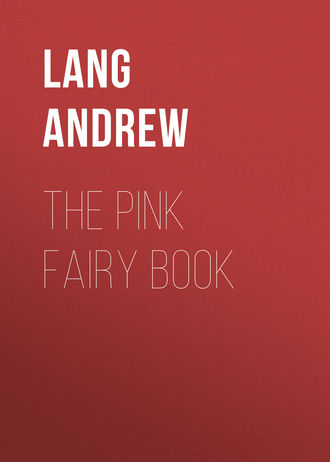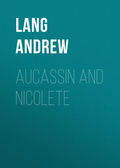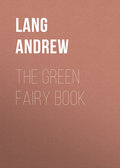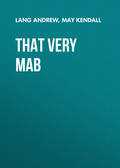
Lang Andrew
The Pink Fairy Book
The faithful servant, however, told the queen that it was the king’s command that during the years he was absent in the war she should keep herself concealed in the castle, so that no one but himself should see her and the little princes.
The queen obeyed, and no one knew but that both she and her children had been burned. But when the time came near for King Lindorm to return home from the war the old retainer grew frightened because he had not obeyed his orders. He therefore went to the queen, and told her everything, at the same time showing her the king’s letter containing the command to burn her and the princes. He then begged her to leave the palace before the king returned.
The queen now took her two little sons, and wandered out into the wild forest. They walked all day without ending a human habitation, and became very tired. The queen then caught sight of a man who carried some venison. He seemed very poor and wretched, but the queen was glad to see a human being, and asked him whether he knew where she and her little children could get a house over their heads for the night.
The man answered that he had a little hut in the forest, and that she could rest there; but he also said that he was one who lived entirely apart from men, and owned no more than the hut, a horse, and a dog, and supported himself by hunting.
The queen followed him to the hut and rested there overnight with her children, and when she awoke in the morning the man had already gone out hunting. The queen then began to put the room in order and prepare food, so that when the man came home he found everything neat and tidy, and this seemed to give him some pleasure. He spoke but little, however, and all that he said about himself was that his name was Peter.
Later in the day he rode out into the forest, and the queen thought that he looked very unhappy. While he was away she looked about her in the hut a little more closely, and found a tub full of shirts stained with blood, lying among water. She was surprised at this, but thought that the man would get the blood on his shirt when he was carrying home venison. She washed the shirts, and hung them up to dry, and said nothing to Peter about the matter.
After some time had passed she noticed that every day he came riding home from the forest he took off a blood-stained shirt and put on a clean one. She then saw that it was something else than the blood of the deer that stained his shirts, so one day she took courage and asked him about it.
At first he refused to tell her, but she then related to him her own story, and how she had succeeded in delivering the lindorm. He then told her that he had formerly lived a wild life, and had finally entered into a written contract * with the Evil Spirit. Before this contract had expired he had repented and turned from his evil ways, and withdrawn himself to this solitude. The Evil One had then lost all power to take him, but so long as he had the contract he could compel him to meet him in the forest each day at a certain time, where the evil spirits then scourged him till he bled.
Next day, when the time came for the man to ride into the forest, the queen asked him to stay at home and look after the princes, and she would go to meet the evil spirits in his place. The man was amazed, and said that this would not only cost her her life, but would also bring upon him a greater misfortune than the one he was already under. She bade him be of good courage, looked to see that she had the three nuts which she had found beside her mother’s grave, mounted her horse, and rode out into the forest. When she had ridden for some time the evil spirits came forth and said, ‘Here comes Peter’s horse and Peter’s hound; but Peter himself is not with them.’
Then at a distance she heard a terrible voice demanding to know what she wanted.
‘I have come to get Peter’s contract,’ said she.
At this there arose a terrible uproar among the evil spirits, and the worst voice among them all said, ‘Ride home and tell Peter that when he comes to-morrow he shall get twice as many strokes as usual.’
The queen then took one of her nuts and cracked it, and turned her horse about. At this sparks of fire flew out of all the trees, and the evil spirits howled as if they were being scourged back to their abode.
Next day at the same time the queen again rode out into the forest; but on this occasion the spirits did not dare to come so near her. They would not, however, give up the contract, but threatened both her and the man. Then she cracked her second nut, and all the forest behind her seemed to be in fire and flames, and the evil spirits howled even worse than on the previous day; but the contract they would not give up.
The queen had only one nut left now, but even that she was ready to give up in order to deliver the man. This time she cracked the nut as soon as she came near the place where the spirits appeared, and what then happened to them she could not see, but amid wild screams and howls the contract was handed to her at the end of a long branch. The queen rode happy home to the hut, and happier still was the man, who had been sitting there in great anxiety, for now he was freed from all the power of the evil spirits.
Meanwhile King Lindorm had come home from the war, and the first question he asked when he entered the palace was about the queen and the whelps. The attendants were surprised: they knew of no whelps. The queen had had two beautiful princes; but the king had sent orders that all these were to be burned.
The king grew pale with sorrow and anger, and ordered them to summon his trusted retainer, to whom he had sent the instructions that the queen and the whelps were to be carefully looked after. The retainer, however, showed him the letter in which there was written that the queen and her children were to be burned, and everyone then understood that some great treachery had been enacted.
When the king’s trusted retainer saw his master’s deep sorrow he confessed to him that he had spared the lives of the queen and the princes, and had only burned a sheep and two lambs, and had kept the queen and her children hidden in the palace for three years, but had sent her out into the wild forest just when the king was expected home. When the king heard this his sorrow was lessened, and he said that he would wander out into the forest and search for his wife and children. If he found them he would return to his palace; but if he did not find them he would never see it again, and in that case the faithful retainer who had saved the lives of the queen and the princes should be king in his stead.
The king then went forth alone into the wild forest, and wandered there the whole day without seeing a single human being. So it went with him the second day also, but on the third day he came by roundabout ways to the little hut. He went in there, and asked for leave to rest himself for a little on the bench. The queen and the princes were there, but she was poorly clad and so sorrowful that the king did not recognise her, neither did he think for a moment that the two children, who were dressed only in rough skins, were his own sons.
He lay down on the bench, and, tired as he was, he soon fell asleep. The bench was a narrow one, and as he slept his arm fell down and hung by the side of it.
‘My son, go and lift your father’s arm up on the bench,’ said the queen to one of the princes, for she easily knew the king again, although she was afraid to make herself known to him. The boy went and took the king’s arm, but, being only a child, he did not lift it up very gently on to the bench.
The king woke at this, thinking at first that he had fallen into a den of robbers, but he decided to keep quiet and pretend that he was asleep until he should find out what kind of folk were in the house. He lay still for a little, and, as no one moved in the room, he again let his arm glide down off the bench. Then he heard a woman’s voice say, ‘My son, go you and lift your father’s arm up on the bench, but don’t do it so rough!y as your brother did.’ Then he felt a pair of little hands softly clasping his arm; he opened his eyes, and saw his queen and her children.
He sprang up and caught all three in his arms, and afterwards took them, along with the man and his horse and his hound, back to the palace with great joy. The most unbounded rejoicing reigned there then, as well as over the whole kingdom, but the wicked stepmother was burned.
King Lindorm lived long and happily with his queen, and there are some who say that if they are not dead now they are still living to this day.
The Jackal, the Dove, and the Panther
Contes populaires des Bassoutos. Recueillis et traduits par E. Jacottet. Paris: Leroux, Editeur.
There was once a dove who built a nice soft nest as a home for her three little ones. She was very proud of their beauty, and perhaps talked about them to her neighbours more than she need have done, till at last everybody for miles round knew where the three prettiest baby doves in the whole country-side were to be found.
One day a jackal who was prowling about in search of a dinner came by chance to the foot of the rock where the dove’s nest was hidden away, and he suddenly bethought himself that if he could get nothing better he might manage to make a mouthful of one of the young doves. So he shouted as loud as he could, ‘Ohe, ohe, mother dove.’
And the dove replied, trembling with fear, ‘What do you want, sir?’
‘One of your children,’ said he; ‘and if you don’t throw it to me I will eat up you and the others as well.’
Now, the dove was nearly driven distracted at the jackal’s words; but, in order to save the lives of the other two, she did at last throw the little one out of the nest. The jackal ate it up, and went home to sleep.
Meanwhile the mother dove sat on the edge of her nest, crying bitterly, when a heron, who was flying slowly past the rock, was filled with pity for her, and stopped to ask, ‘What is the matter, you poor dove?’
And the dove answered, ‘A jackal came by, and asked me to give him one of my little ones, and said that if I refused he would jump on my nest and eat us all up.’
But the heron replied, ‘You should not have believed him. He could never have jumped so high. He only deceived you because he wanted something for supper.’ And with these words the heron flew off.
He had hardly got out of sight when again the jackal came creeping slowly round the foot of the rock. And when he saw the dove he cried out a second time, ‘Ohe, ohe, mother dove! give me one of your little ones, or I will jump on your nest and eat you all up.’
This time the dove knew better, and she answered boldly, ‘Indeed, I shall do nothing of the sort,’ though her heart beat wildly with fear when she saw the jackal preparing for a spring.
However, he only cut himself against the rock, and thought he had better stick to threats, so he started again with his old cry, ‘Mother dove, mother dove! be quick and give me one of your little ones, or I will eat you all up.’
But the mother dove only answered as before, ‘Indeed, I shall do nothing of the sort, for I know we are safely out of your reach.’
The jackal felt it was quite hopeless to get what he wanted, and asked, ‘Tell me, mother dove, how have you suddenly become so wise?’
‘It was the heron who told me,’ replied she.
‘And which way did he go?’ said the jackal.
‘Down there among the reeds. You can see him if you look,’ said the dove.
Then the jackal nodded good-bye, and went quickly after the heron. He soon came up to the great bird, who was standing on a stone on the edge of the river watching for a nice fat fish. ‘Tell me, heron,’ said he, ‘when the wind blows from that quarter, to which side do you turn?’
‘And which side do you turn to?’ asked the heron.
The jackal answered, ‘I always turn to this side.’
‘Then that is the side I turn to,’ remarked the heron.
‘And when the rain comes from that quarter, which side do you turn to?’
And the heron replied, ‘And which side do you turn to?’
‘Oh, I always turn to this side,’ said the jackal.
‘Then that is the side I turn to,’ said the heron.
‘And when the rain comes straight down, what do you do?’
‘What do you do yourself?’ asked the heron.
‘I do this,’ answered the jackal. ‘I cover my head with my paws.’
‘Then that is what I do,’ said the heron. ‘I cover my head with my wings,’ and as he spoke he lifted his large wings and spread them completely over his head.
With one bound the jackal had seized him by the neck, and began to shake him.
‘Oh, have pity, have pity!’ cried the heron. ‘I never did you any harm.’
‘You told the dove how to get the better of me, and I am going to eat you for it.’
‘But if you will let me go,’ entreated the heron, ‘I will show you the place where the panther has her lair.’
‘Then you had better be quick about it,’ said the jackal, holding tight on to the heron until he had pointed out the panther’s den. ‘Now you may go, my friend, for there is plenty of food here for me.’
So the jackal came up to the panther, and asked politely, ‘Panther, would you like me to look after your children while you are out hunting?’
‘I should be very much obliged,’ said the panther; ‘but be sure you take care of them. They always cry all the time that I am away.’
So saying she trotted off, and the jackal marched into the cave, where he found ten little panthers, and instantly ate one up. By-and-bye the panther returned from hunting, and said to him, ‘Jackal, bring out my little ones for their supper.’
The jackal fetched them out one by one till he had brought out nine, and he took the last one and brought it out again, so the whole ten seemed to be there, and the panther was quite satisfied.
Next day she went again to the chase, and the jackal ate up another little panther, so now there were only eight. In the evening, when she came back, the panther said, ‘Jackal, bring out my little ones!’
And the jackal brought out first one and then another, and the last one he brought out three times, so that the whole ten seemed to be there.
The following day the same thing happened, and the next and the next and the next, till at length there was not even one left, and the rest of the day the jackal busied himself with digging a large hole at the back of the den.
That night, when the panther returned from hunting, she said to him as usual, ‘Jackal, bring out my little ones.’
But the jackal replied: ‘Bring out your little ones, indeed! Why, you know as well as I do that you have eaten them all up.’
Of course the panther had not the least idea what the jackal meant by this, and only repeated, ‘Jackal, bring out my children.’ As she got no answer she entered the cave, but found no jackal, for he had crawled through the hole he had made and escaped. And, what was worse, she did not find the little ones either.
Now the panther was not going to let the jackal get off like that, and set off at a trot to catch him. The jackal, however, had got a good start, and he reached a place where a swarm of bees deposited their honey in the cleft of a rock. Then he stood still and waited till the panther came up to him: ‘Jackal, where are my little ones?’ she asked.
And the jackal answered: ‘They are up there. It is where I keep school.’
The panther looked about, and then inquired, ‘But where? I see nothing of them.’
‘Come a little this way,’ said the jackal, ‘and you will hear how beautifully they sing.’
So the panther drew near the cleft of the rock.
‘Don’t you hear them?’ said the jackal; ‘they are in there,’ and slipped away while the panther was listening to the song of the children.
She was still standing in the same place when a baboon went by. ‘What are you doing there, panther?’
‘I am listening to my children singing. It is here that the jackal keeps his school.’
Then the baboon seized a stick, and poked it in the cleft of the rock, exclaiming, ‘Well, then, I should like to see your children!’
The bees flew out in a huge swarm, and made furiously for the panther, whom they attacked on all sides, while the baboon soon climbed up out of the way, crying, as he perched himself on the branch of a tree, ‘I wish you joy of your children!’ while from afar the jackal’s voice was heard exclaiming: ‘Sting, her well! don’t let her go!’
The panther galloped away as if she was mad, and flung herself into the nearest lake, but every time she raised her head, the bees stung her afresh so at last the poor beast was drowned altogether.
The Little Hare
Contes populaires des Bassoutos. Recueillis et traduits par E. Jacottet. Paris: Leroux, Editeur.
A long, long way off, in a land where water is very scarce, there lived a man and his wife and several children. One day the wife said to her husband, ‘I am pining to have the liver of a nyamatsane for my dinner. If you love me as much as you say you do, you will go out and hunt for a nyamatsane, and will kill it and get its liver. If not, I shall know that your love is not worth having.’
‘Bake some bread,’ was all her husband answered, ‘then take the crust and put it in this little bag.’
The wife did as she was told, and when she had finished she said to her husband, ‘The bag is all ready and quite full.’
‘Very well,’ said he, ‘and now good-bye; I am going after the nyamatsane.’
But the nyamatsane was not so easy to find as the woman had hoped. The husband walked on and on and on without ever seeing one, and every now and then he felt so hungry that he was obliged to eat one of the crusts of bread out of his bag. At last, when he was ready to drop from fatigue, he found himself on the edge of a great marsh, which bordered on one side the country of the nyamatsanes. But there were no more nyamatsanes here than anywhere else. They had all gone on a hunting expedition, as their larder was empty, and the only person left at home was their grandmother, who was so feeble she never went out of the house. Our friend looked on this as a great piece of luck, and made haste to kill her before the others returned, and to take out her liver, after which he dressed himself in her skin as well as he could. He had scarcely done this when he heard the noise of the nyamatsanes coming back to their grandmother, for they were very fond of her, and never stayed away from her longer than they could help. They rushed clattering into the hut, exclaiming, ‘We smell human flesh! Some man is here,’ and began to look about for him; but they only saw their old grandmother, who answered, in a trembling voice, ‘No, my children, no! What should any man be doing here?’ The nyamatsanes paid no attention to her, and began to open all the cupboards, and peep under all the beds, crying out all the while, ‘A man is here! a man is here!’ but they could find nobody, and at length, tired out with their long day’s hunting, they curled themselves up and fell asleep.
Next morning they woke up quite refreshed, and made ready to start on another expedition; but as they did not feel happy about their grandmother they said to her, ‘Grandmother, won’t you come to-day and feed with us?’ And they led their grandmother outside, and all of them began hungrily to eat pebbles. Our friend pretended to do the same, but in reality he slipped the stones into his pouch, and swallowed the crusts of bread instead. However, as the nyamatsanes did not see this they had no idea that he was not really their grandmother. When they had eaten a great many pebbles they thought they had done enough for that day, and all went home together and curled themselves up to sleep. Next morning when they woke they said, ‘Let us go and amuse ourselves by jumping over the ditch,’ and every time they cleared it with a bound. Then they begged their grandmother to jump over it too, end with a tremendous effort she managed to spring right over to the other side. After this they had no doubt at all of its being their true grandmother, and went off to their hunting, leaving our friend at home in the hut.
As soon as they had gone out of sight our hero made haste to take the liver from the place where he had hid it, threw off the skin of the old nyamatsane, and ran away as hard as he could, only stopping to pick up a very brilliant and polished little stone, which he put in his bag by the side of the liver.
Towards evening the nyamatsanes came back to the hut full of anxiety to know how their grandmother had got on during their absence. The first thing they saw on entering the door was her skin lying on the floor, and then they knew that they had been deceived, and they said to each other, ‘So we were right, after all, and it was human flesh we smelt.’ Then they stooped down to find traces of the man’s footsteps, and when they had got them instantly set out in hot pursuit.
Meanwhile our friend had journeyed many miles, and was beginning to feel quite safe and comfortable, when, happening to look round, he saw in the distance a thick cloud of dust moving rapidly. His heart stood still within him, and he said to himself, ‘I am lost. It is the nyamatsanes, and they will tear me in pieces,’ and indeed the cloud of dust was drawing near with amazing quickness, and the nyamatsanes almost felt as if they were already devouring him. Then as a last hope the man took the little stone that he had picked up out of his bag and flung it on the ground. The moment it touched the soil it became a huge rock, whose steep sides were smooth as glass, and on the top of it our hero hastily seated himself. It was in vain that the nyamatsanes tried to climb up and reach him; they slid down again much faster than they had gone up; and by sunset they were quite worn out, and fell asleep at the foot of the rock.
No sooner had the nyamatsanes tumbled off to sleep than the man stole softly down and fled away as fast as his legs would carry him, and by the time his enemies were awake he was a very long way off. They sprang quickly to their feet and began to sniff the soil round the rock, in order to discover traces of his footsteps, and they galloped after him with terrific speed. The chase continued for several days and nights; several times the nyamatsanes almost reached him, and each time he was saved by his little pebble.
Between his fright and his hurry he was almost dead of exhaustion when he reached his own village, where the nyamatsanes could not follow him, because of their enemies the dogs, which swarmed over all the roads. So they returned home.
Then our friend staggered into his own hut and called to his wife: ‘Ichou! how tired I am! Quick, give me something to drink. Then go and get fuel and light a fire.’
So she did what she was bid, and then her husband took the nyamatsane’s liver from his pouch and said to her, ‘There, I have brought you what you wanted, and now you know that I love you truly.’
And the wife answered, ‘It is well. Now go and take out the children, so that I may remain alone in the hut,’ and as she spoke she lifted down an old stone pot and put on the liver to cook. Her husband watched her for a moment, and then said, ‘Be sure you eat it all yourself. Do not give a scrap to any of the children, but eat every morsel up.’ So the woman took the liver and ate it all herself.
Directly the last mouthful had disappeared she was seized with such violent thirst that she caught up a great pot full of water and drank it at a single draught. Then, having no more in the house, she ran in next door and said, ‘Neighbour, give me, I pray you, something to drink.’ The neighbour gave her a large vessel quite full, and the woman drank it off at a single draught, and held it out for more.
But the neighbour pushed her away, saying, ‘No, I shall have none left for my children.’
So the woman went into another house, and drank all the water she could find; but the more she drank the more thirsty she became. She wandered in this manner through the whole village till she had drunk every water-pot dry. Then she rushed off to the nearest spring, and swallowed that, and when she had finished all the springs and wells about she drank up first the river and then a lake. But by this time she had drunk so much that she could not rise from the ground.
In the evening, when it was time for the animals to have their drink before going to bed, they found the lake quite dry, and they had to make up their minds to be thirsty till the water flowed again and the streams were full. Even then, for some time, the lake was very dirty, and the lion, as king of the beasts, commanded that no one should drink till it was quite clear again.
But the little hare, who was fond of having his own way, and was very thirsty besides, stole quietly off when all the rest were asleep in their dens, and crept down to the margin of the lake and drank his fill. Then he smeared the dirty water all over the rabbit’s face and paws, so that it might look as if it were he who had been disobeying Big Lion’s orders.
The next day, as soon as it was light, Big Lion marched straight for the lake, and all the other beasts followed him. He saw at once that the water had been troubled again, and was very angry.
‘Who has been drinking my water?’ said he; and the little hare gave a jump, and, pointing to the rabbit, he answered, ‘Look there! it must be he! Why, there is mud all over his face and paws!’
The rabbit, frightened out of his wits, tried to deny the fact, exclaiming, ‘Oh, no, indeed I never did;’ but Big Lion would not listen, and commanded them to cane him with a birch rod.
Now the little hare was very much pleased with his cleverness in causing the rabbit to be beaten instead of himself, and went about boasting of it. At last one of the other animals overheard him, and called out, ‘Little hare, little hare! what is that you are saying?’
But the little hare hastily replied, ‘I only asked you to pass me my stick.’
An hour or two later, thinking that no one was near him, he said to himself again, ‘It was really I who drank up the water, but I made them think it was the rabbit.’
But one of the beasts whose ears were longer than the rest caught the words, and went to tell Big Lion about it. Do you hear what the little hare is saying?’
So Big Lion sent for the little hare, and asked him what he meant by talking like that.
The little hare saw that there was no use trying to hide it, so he answered pertly, ‘It was I who drank the water, but I made them think it was the rabbit.’ Then he turned and ran as fast as he could, with all the other beasts pursuing him.
They were almost up to him when he dashed into a very narrow cleft in the rock, much too small for them to follow; but in his hurry he had left one of his long ears sticking out, which they just managed to seize. But pull as hard as they might they could not drag him out of the hole, and at last they gave it up and left him, with his ear very much torn and scratched.
When the last tail was out of sight the little hare crept cautiously out, and the first person he met was the rabbit. He had plenty of impudence, so he put a bold face on the matter, and said, ‘Well, my good rabbit, you see I have had a beating as well as you.’
But the rabbit was still sore and sulky, and he did not care to talk, so he answered, coldly, ‘You have treated me very badly. It was really you who drank that water, and you accused me of having done it.’
‘Oh, my good rabbit, never mind that! I’ve got such a wonderful secret to tell you! Do you know what to do so as to escape death?’
‘No, I don’t.’
‘Well, we must begin by digging a hole.’
So they dug a hole, and then the little hare said, ‘The next thing is to make a fire in the hole,’ and they set to work to collect wood, and lit quite a large fire.
When it was burning brightly the little hare said to the rabbit, ‘Rabbit, my friend, throw me into the fire, and when you hear my fur crackling, and I call “Itchi, Itchi,” then be quick and pull me out.’
The rabbit did as he was told, and threw the little hare into the fire; but no sooner did the little hare begin to feel the heat of the flames than he took some green bay leaves he had plucked for the purpose and held them in the middle of the fire, where they crackled and made a great noise. Then he called loudly ‘Itchi, Itchi! Rabbit, my friend, be quick, be quick! Don’t you hear how my skin is crackling?’
And the rabbit came in a great hurry and pulled him out.
Then the little hare said, ‘Now it is your turn!’ and he threw the rabbit in the fire. The moment the rabbit felt the flames he cried out ‘Itchi, Itchi, I am burning; pull me out quick, my friend!’
But the little hare only laughed, and said, ‘No, you may stay there! It is your own fault. Why were you such a fool as to let yourself be thrown in? Didn’t you know that fire burns?’ And in a very few minutes nothing was left of the rabbit but a few bones.
When the fire was quite out the little hare went and picked up one of these bones, and made a flute out of it, and sang this song:
Pii, pii, O flute that I love, Pii, pii, rabbits are but little boys. Pii, pii, he would have burned me if he could; Pii, pii, but I burned him, and he crackled finely.
When he got tired of going through the world singing this the little hare went back to his friends and entered the service of Big Lion. One day he said to his master, ‘Grandfather, shall I show you a splendid way to kill game?’
‘What is it?’ asked Big Lion.
‘We must dig a ditch, and then you must lie in it and pretend to be dead.’
Big Lion did as he was told, and when he had lain down the little hare got up on a wall blew a trumpet and shouted —
Pii, pii, all you animals come and see, Big Lion is dead, and now peace will be.
Directly they heard this they all came running. The little hare received them and said, ‘Pass on, this way to the lion.’ So they all entered into the Animal Kingdom. Last of all came the monkey with her baby on her back. She approached the ditch, and took a blade of grass and tickled Big Lion’s nose, and his nostrils moved in spite of his efforts to keep them still. Then the monkey cried, ‘Come, my baby, climb on my back and let us go. What sort of a dead body is it that can still feel when it is tickled?’ And she and her baby went away in a fright. Then the little hare said to the other beasts, ‘Now, shut the gate of the Animal Kingdom.’ And it was shut, and great stones were rolled against it. When everything was tight closed the little hare turned to Big Lion and said ‘Now!’ and Big Lion bounded out of the ditch and tore the other animals in pieces.







